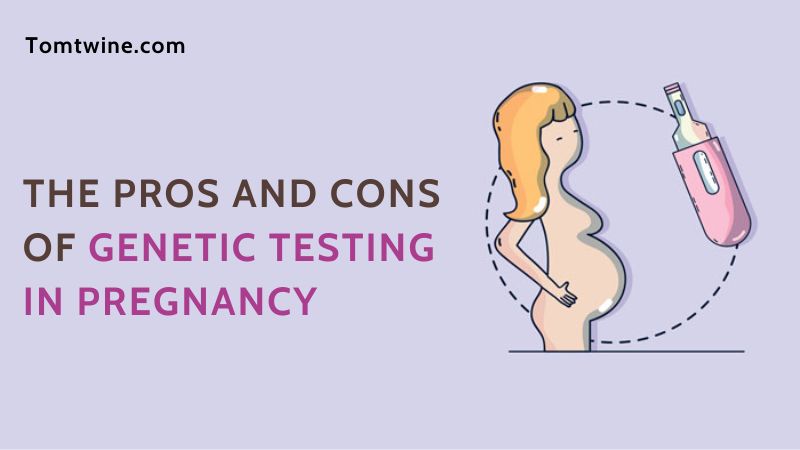Genetic testing during pregnancy has become increasingly common, offering expectant parents valuable insights into the health and well-being of their unborn child. However, as with any medical procedure, there are both advantages and disadvantages to consider. In this article, Symbl.app will explore the pros and cons of genetic testing in pregnancy, empowering parents to make informed decisions about their family’s future.
The Pros and Cons of Genetic Testing in Pregnancy
Pros of Genetic Testing in Pregnancy:

- Early Detection: One of the most significant advantages of genetic testing in pregnancy is the ability to detect potential genetic disorders or chromosomal abnormalities early on. This allows parents to prepare emotionally, financially, and medically for the birth of a child with special needs. Early detection facilitates access to necessary resources and support systems, ensuring that parents are better equipped to navigate the challenges that lie ahead.
- Informed Decision-Making: Genetic testing provides expectant parents with crucial information to make informed decisions about their pregnancy. By knowing in advance about any potential genetic conditions or risks, parents can weigh their options and make choices that align with their values and beliefs. Whether it involves preparing for the birth of a child with special needs or considering alternative paths such as adoption or termination, genetic testing empowers parents to take control of their family’s future.
- Peace of Mind: Negative results from genetic testing can provide significant peace of mind to expectant parents. Receiving confirmation that the fetus is healthy can alleviate anxiety and allow parents to fully embrace the joy of pregnancy without the constant worry about potential complications or health issues.
- Preparation: For parents who receive positive results indicating a genetic disorder or chromosomal abnormality, genetic testing offers the opportunity to prepare for the unique needs of their child. From researching treatment options to connecting with support groups and medical specialists, early detection enables parents to proactively plan for the care and well-being of their child, ensuring that they are ready to provide the necessary love and support from the moment of birth.
- Medical Management: In cases where genetic conditions are detected, early intervention is key to improving outcomes for the baby. Genetic testing allows healthcare providers to implement appropriate medical management strategies, such as monitoring the pregnancy more closely or initiating early interventions or treatments, thereby optimizing the health and well-being of both the mother and the baby.
Cons of Genetic Testing in Pregnancy:

- Emotional Impact: Despite its benefits, genetic testing can have a profound emotional impact on expectant parents. Receiving positive results indicating a high risk of a genetic disorder or chromosomal abnormality can lead to feelings of fear, sadness, and uncertainty about the future.
- False Positives/Negatives: Genetic testing may produce false positive or false negative results, leading to unnecessary anxiety or providing false reassurance to parents. The uncertainty surrounding the accuracy of test results can exacerbate the emotional toll of the testing process.
- Ethical Dilemmas: The use of genetic testing in pregnancy raises complex ethical questions, particularly regarding issues such as sex selection and the identification of non-medical traits. Parents may grapple with ethical dilemmas related to the implications of genetic testing on their family dynamics and societal norms.
- Privacy Concerns: Genetic testing raises concerns about privacy, as test results may be shared with third parties such as insurance companies. The fear of genetic discrimination or the misuse of genetic information may deter some parents from undergoing testing altogether.
- Cost: Genetic testing can be expensive, and not all tests may be covered by insurance. The financial burden of genetic testing may pose a barrier for some families, limiting access to potentially life-changing information about their child’s health.
- Decision-Making Complexity: Receiving genetic testing results can introduce complex decision-making processes for parents. Decisions about whether to undergo further diagnostic procedures, continue with the pregnancy, or pursue alternative options require careful consideration and may cause significant emotional distress.
- Unanticipated Findings: Genetic testing may uncover unexpected information about the parents’ genetic makeup or familial relationships. These unanticipated findings can raise additional ethical and emotional challenges for expectant parents, further complicating the decision-making process.
Navigating the Pros and Cons:

Despite the challenges associated with genetic testing in pregnancy, it remains a valuable tool for expectant parents seeking to make informed decisions about their family’s future. To navigate the pros and cons effectively, it is essential for parents to seek support from healthcare providers and genetic counselors who can provide guidance and support throughout the testing process.
Conclusion:
In conclusion, the pros and cons of genetic testing in pregnancy highlight the importance of careful consideration and informed decision-making. While genetic testing offers valuable insights into the health of the fetus and empowers parents to take proactive steps to ensure the well-being of their child, it also raises significant challenges and ethical dilemmas that must be addressed. By weighing the potential benefits and risks and seeking support from healthcare providers and genetic counselors, expectant parents can navigate the complexities of genetic testing and make choices that are in the best interest of their family’s future.
